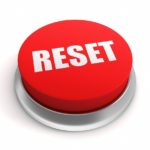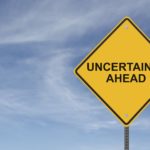Blog
The Case for Change
The case for change
It is vital that we listen to those who have a different range of experiences, skill sets, aspirations and even values. Too often we see companies recruit to a paradigm and then wondering why they struggle to adapt to changes in the market place, new technologies or opportunities
We deal with the who in our blog “Who do we listen do?” Let’s focus on the why here.
It is vital to see change as a necessary part of existence. We continually change to survive. More importantly and interestingly we change to thrive. When we recognise what we have done well we can tweak it slightly to take account of a new technology, process, competitor or market dynamics. This does not mean we did something wrong in the first place. What it does is allow us to we learn the joy of thriving, or riding the wave of the forces that surround us rather than be consumed by them. We do not stick rigidly to our course but shift with the changing patterns of the forces around us.
When we try to change it can reveal a lot about ourselves that we may not have been aware of. We can learn where our comfort zone stops and starts, what habits we want to keep, what views of ourselves we want to cling on to. I worked with a client who wanted to discuss a career change as he felt it was time to make a move. I asked him to try a small change such as hold you tea in a different hand – “it would feel uncomfortable,” try getting the bus to work instead of the DART – “It’s not as predictable,” – try a new venue of lunch or a new menu – “I know the staff and like the food.” I saw all these reasons not do the small changes but absolute confidence a large career change can happen smoothly. Over time as we probed the resistance the realisation dawned that the change “muscle” need to be exercised over time.
In a world where the dynamics are moving at increasing speed whether customers’ expectations, technology, political events, staff expectations and value systems we have to continually adapt.
Of course, to adapt to change we often find resistance. In my experience this is based on the ego which insists that wat we are doing is right and therefor doesn’t need to change. The fatal flaw in the argument is that one does not follow the other. We may well have done nothing wrong but that does not mean we do not have to change. What we did may have been absolutely correct for that set of circumstances which prevailed at the time but those circumstances will never be recreated. It is not about being right or wrong; it is about being appropriate and timely. We need to do two things which may appear contradictory. We need to celebrate what we did well to get to this position and recognise we can learn from the experience to adapt to get to the new goal
Change becomes a habit. The benefits of cultivating this habit in terms of stress management, improved performance, and maximisation of resources are enormous.



